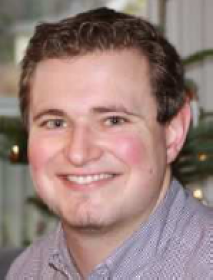
VASC Seminar
July

3:00 pm to 12:00 am
Event Location: NSH 1305
Bio: Andreas Wendel received his B.Sc. and M.Sc. degree in Telematics (computer science and electrical engineering) from Graz University of Technology in 2007 and 2009, respectively. His studies were focused on computer vision and cognitive signal processing and he finished with highest distinction. Currently he is the head of the Aerial Vision Group, lecturer, and PhD student (supervised by Prof. Horst Bischof) at the Institute of Computer Vision and Graphics at Graz University of
Technology, Austria. His research interests include visual navigation, image-based localization and mapping, and autonomous vehicles. Andreas has worked as a software developer, researcher, and project leader for several companies, including Microsoft Corporation and Omicron electronics. He received several awards for excellent performance as a student, a study abroad scholarship for McMaster University (Canada), and the FIT-IT Visual Computing First Price 2009 for his proposal of the PEGASUS project. Recently he’s been awarded the Best Presentation Prize at the International Computer Vision Summer School (ICVSS) 2011 and the Best Paper Award at the CVPR 2011 Workshop on Aerial Video Processing. This summer, Andreas is going to work with Martial Hebert on autonomous MAV navigation in cluttered forest environments.
Abstract: Accurate localization of a micro aerial vehicle (MAV) with respect to a scene is important for a wide range of applications, in particular autonomous navigation, surveillance, and inspection. In this context, the areas of interest are often close to buildings, to the ground, and to other obstacles. While GPS is still the most widely used sensor for outdoor localization, visual outdoor perception is gaining importance in urban and natural environments. In this talk, recent approaches and results for robust 3D reconstruction of suitable visual landmarks, for the alignment in a world coordinate system, and for fast monocular visual localization based on the concept of virtual views are presented. Furthermore, a novel distributed reconstruction pipeline (CVPR 2012) that is capable of generating dense volumetric reconstructions based on monocular input from an MAV in real-time is described. The system is based on state-of-the-art approaches to visual SLAM and variational depth map fusion, and is designed to exploit the individual capabilities of the system components.